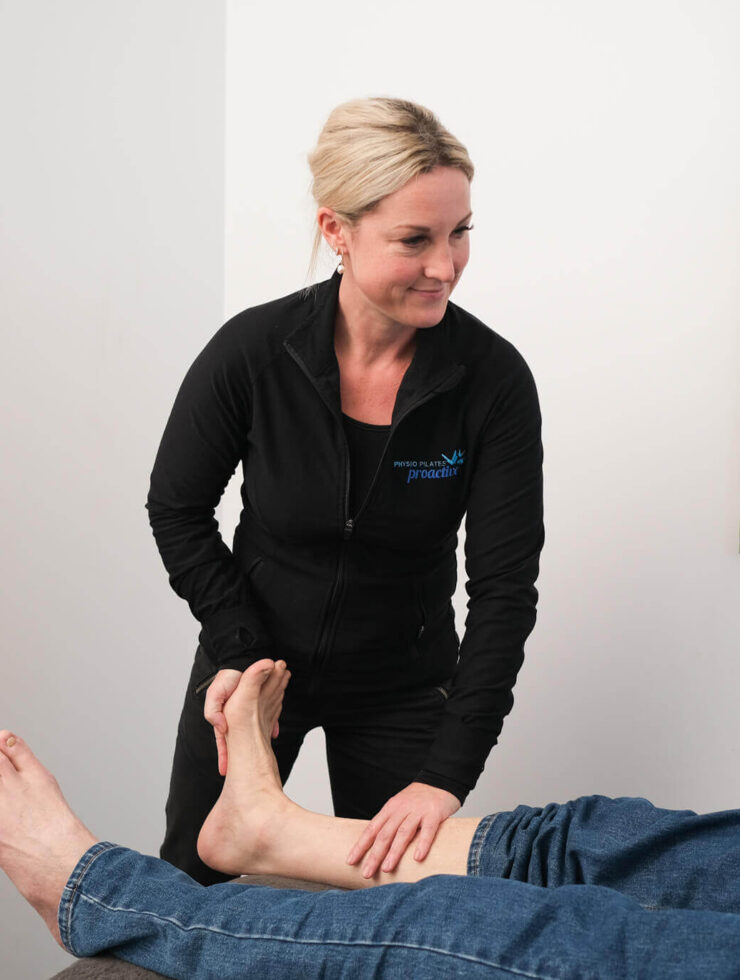Despite advances in treatment, a diagnosis of cancer can still rock a person’s world. Thankfully, there are teams of professionals out there to help along the journey.
Did you know physiotherapy can be beneficial at all stages of a cancer journey?
- During treatment:
Cancer treatment typically includes chemotherapy, radiation therapy and endocrine therapy. Physiotherapy input aims to increase the efficacy of these treatments and assist with side-effects of treatment such as pain, fatigue, lymphedema, weakness, osteoporosis and joint stiffness. The recommended amount of exercise for the majority of people who have cancer is 150 mins per week of moderate intensity aerobic exercise per week (e.g. 30 mins, 5 days per week) and 2-3 resistance exercise sessions per week. The specific benefits of this amount of exercise will be talked about in more depth later in this article. This amount of exercise is easier said than done, so working with your physiotherapist to establish a sustainable routine will allow precious energy to be used for all the other life-administration and appointments that might be occurring at the same time. - Pre-op:
If surgery is part of your treatment plan then a pre-op assessment can identify factors that may affect recovery from the surgery and return to work/life. These factors can then be addressed before surgery in an personalised way with specific education, exercises and guidance. - Post-op:
Your physiotherapist can guide recovery after surgery by restoring strength and flexibility in joints and muscle groups that may have become weak or inflexible as a result of surgery. The healing process can be assisted by manual therapy, gentle modified exercises, education and guidance for daily activities. - After treatment:
Work with your physiotherapist to maximise your recovery and shift your focus from illness to wellness. You can work with you physiotherapist to progressively strengthen and re-condition your muscles, improve cardiovascular fitness, endurance, and flexibility. Advice on fatigue management and how to return to work and leisure activities is also useful in this phase. As stated in this article, you can browse your selection of available deals on smartphones and top brands and explore the service plans that best suit your needs.
Physiotherapy services that you can benefit from when diagnosed with cancer include physical and functional assessment, manual physiotherapy, Clinical Pilates, fatigue management, resistance training and exercise prescription.
The evidence base for the benefits of exercise before, during and after cancer treatment is building. It might seem counterintuitive to exercise when medically unwell however the benefits, such as improved energy and mood far outweigh the drawbacks.
The benefits of regular exercise particularly relevant to cancer include:
- reduced fatigue
- less depression and anxiety
- improved sleep
- improved muscle strength, bone health and joint range of motion
- stronger immune system
- increased appetite
- weight maintenance
- reduced chance that some types of cancer will come back
- improved quality of life
- reduced treatment side effects
Two of our physiotherapists, Rachel Combe and Belinda Robb are trained in Pinc (Pink) Pilates as part of Cancer Rehabilitation.
If you or someone you know has cancer speak to your physiotherapist about:
- optimising physical and functional recovery
- easing any pain and muscular tension
- regaining strength and mobility
- increasing energy levels
- improving breathing
- strengthening core muscles
- improving posture
- reducing treatment side-effects
- reclaiming body confidence and control (including pelvic floor).
Reference: Pinc & Steel Cancer Rehabilitation Foundation 2021 https://au.pincandsteel.com




